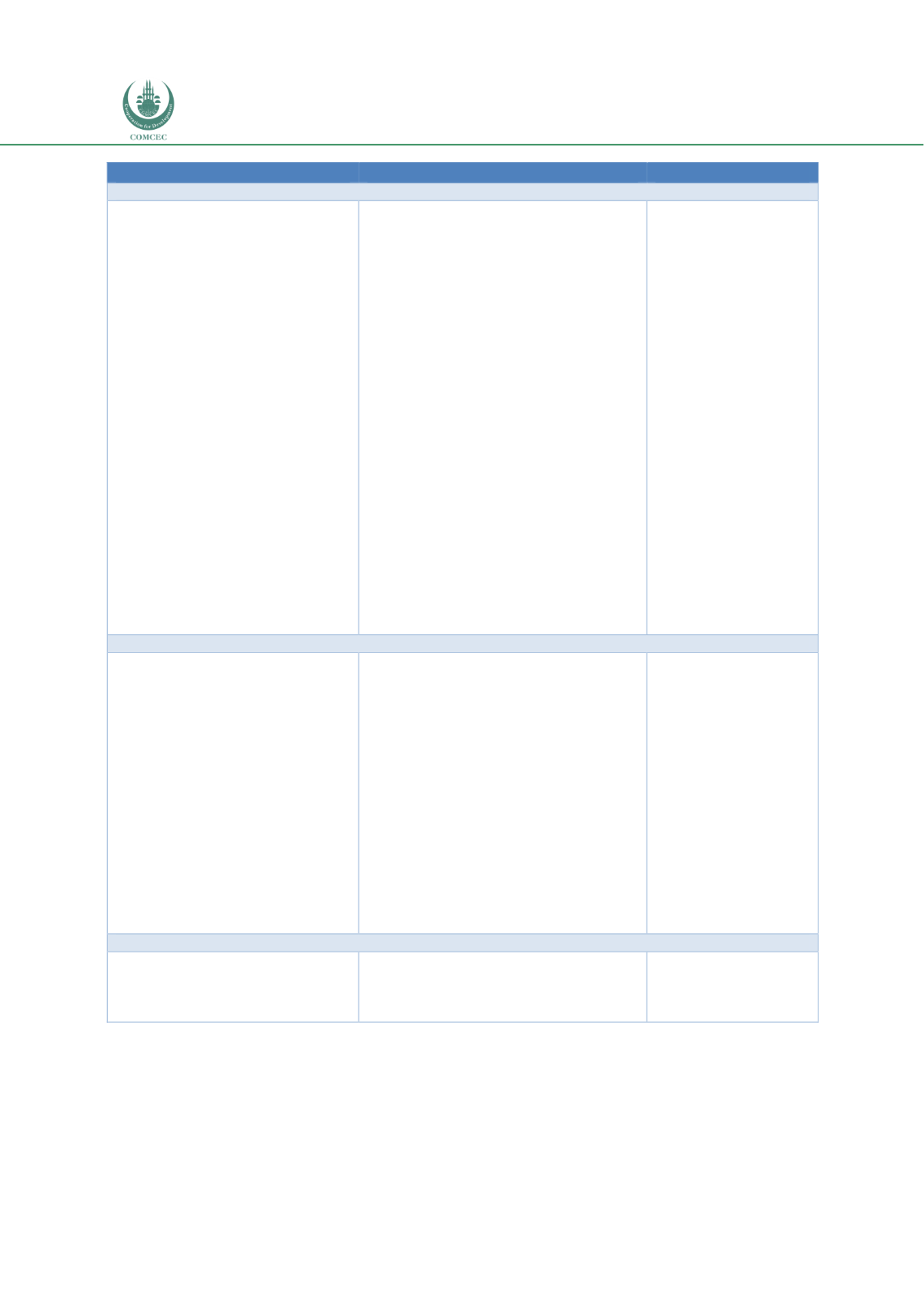

Infrastructure Financing through Islamic
Finance in the Islamic Countries
124
Issues
Recommendations
Implemented by
Islamic Financial Institutions
The short-term and liquid liability
structure of Islamic banks makes it
difficult for Islamic banks to invest
in long-term infrastructure
projects. Since the investors of
investment accounts bear the risks
of the investments, Islamic banks
would hold relatively less capital
for investments made from these
accounts.
Nigeria has an underdeveloped
Islamic money market with few
liquidity management instruments.
The Islamic nonbank financial
institutions sector in Nigeria is
insignificant, limiting investments
in the infrastructure sector.
Introduce long-term risk-sharing
investment accounts in Islamic banks
that can be used for infrastructure
projects.
Develop a well-functioning Islamic
money market and instruments to help
Islamic banks to mitigate liquidity risks
that may arise from long-term
investments.
Introduce takaful companies, Islamic
investment banks and Shariah-compliant
pension funds.
Establish an Islamic infrastructure
fund/bank that can pool resources from
different investors to increase
investments in infrastructure projects.
Relevant ministry and
regulators
Islamic banks
Central bank
Other stakeholders
such as Islamic
financial institutions
Regulatory authorities
Islamic nonbank
financial institutions
Islamic Capital Markets
Since the sukuk issued in Nigeria
for infrastructure projects were
over-subscribed, there is potential
for the issuance of more sukuk to
fund the huge infrastructure needs
of the country.
Sukuk structures are complex and
new in the country.
Retail sukuk can be an alternative
source of funds for infrastructure
projects.
Issue
more
sukuk
to
finance
infrastructure projects.
Develop a market and infrastructure for
Islamic capital market/sukuk.
Provide advice on the issuance of sukuk
and develop templates for issuing sukuk
for infrastructure projects.
Issue retail sukuk
Introduce financial literacy programs to
increase the literacy of Islamic finance
Introduce efficient mechanisms for the
delivery and redemption of sukuk issues.
Issuers (sovereign and
corporates)
Capital markets
authority
Capital markets
authority
Capital markets
authority
Issuers (sovereign and
corporates)
Financial institutions
Islamic Social Sector
Developing innovative models of
zakat and waqf can potentially
provide
social
infrastructure
services.
Increase the proceeds from zakat and
waqf by using innovative structures that
can help develop social infrastructure
sectors.
Zakat and waqf
institutions
















